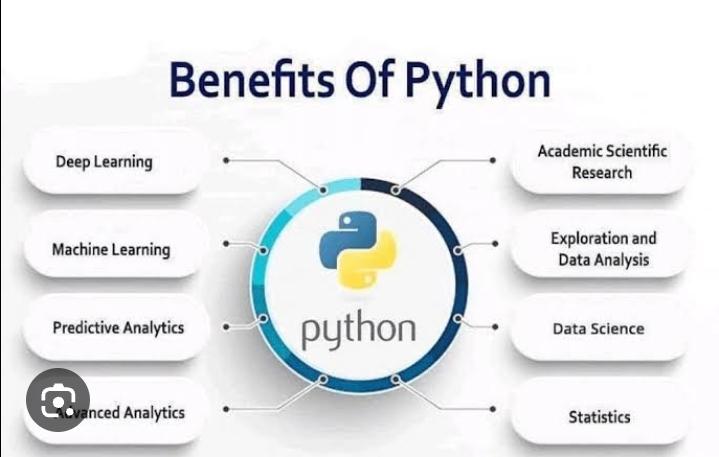Inquire
Python is a high-level, interpreted programming language known for its simplicity, readability, and versatility.

Readable and Elegant Syntax: Python emphasizes code readability with its clean and straightforward syntax. This makes it easier for developers to write and maintain code.
Interpreted Language: Python is an interpreted language, meaning the code is executed line by line by the Python interpreter, rather than being compiled into machine code.
Dynamic Typing: Python is dynamically typed, which means variable types are determined at runtime, making it more flexible and easier to work with.
Object-Oriented: Python supports object-oriented programming, allowing developers to use classes and objects for better code organization and modularity.
Large Standard Library: Python comes with a rich standard library that provides modules and functions for various tasks, such as working with files, networking, databases, regular expressions, and more.
Extensive Third-Party Libraries: Python has a vibrant community that has developed numerous third-party libraries and frameworks, like NumPy, Pandas, TensorFlow, Django, Flask, and many others, which extend the language's capabilities significantly.
Platform Independence: Python is platform-independent, which means you can write code on one platform and run it on another without modifications.
Highly Scalable: Python is suitable for small scripts as well as large-scale applications.
Here's a simple "Hello, World!" program in Python:
pythonCopy code
print("Hello, World!")
Python is a great choice for beginners due to its readability and ease of learning. However, it is also a powerful language that is widely used in professional software development and other domains. Its flexibility and large community support make it a popular choice for various applications.

- Managerial Effectiveness!
- Future and Predictions
- Motivatinal / Inspiring
- Other
- Entrepreneurship
- Mentoring & Guidance
- Marketing
- Networking
- HR & Recruiting
- Literature
- Shopping
- Career Management & Advancement


 SkillClick
SkillClick